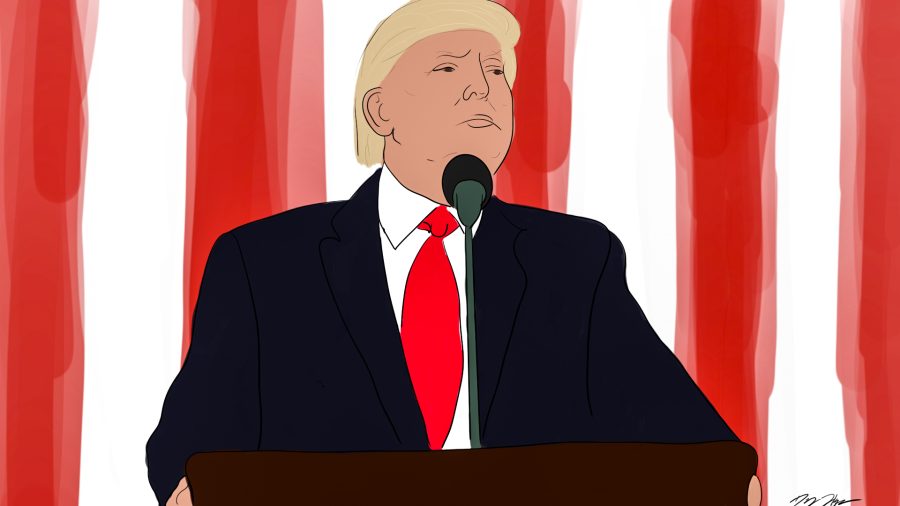After facing his second impeachment trial, former president of the United States Donald Trump has been acquitted on the charge of inciting an insurrection.
The charge was based on the attack on the Capitol on Jan. 6, 2021, which killed five people. The acquittal occurred on Saturday, Feb. 13, 2021, and the trial itself lasted a little less than a week.
The vote in the Senate to convict Trump was 57 to 43, however, this was ten votes shy of the two-thirds majority necessary to convict Trump.
Seven Republicans voted to convict Trump. They were: Richard Burr of North Carolina, Bill Cassidy of Louisiana, Susan Collins of Maine, Lisa Murkowski of Alaska, Mitt Romney of Utah, Ben Sasse of Nebraska and Patrick Toomey of Pennsylvania.
Several of these senators are already facing backlash in their home states for voting to convict Trump.
The Louisiana GOP approved a censure of Senator Bill Cassidy on Saturday, Feb. 13, quickly after the trial ended. Similarly, The North Carolina Republican Party voted unanimously to censure Senator Richard Burr on Monday, Feb. 15.
“Less severe than expulsion, a censure (sometimes referred to as condemnation or denouncement) does not remove a senator from office,” according to senate.gov, “It is a formal statement of disapproval, however, that can have a powerful psychological effect on a member and his/her relationships in the Senate.”
Other Republican senators have the potential to face backlash as well.
In Pennsylvania, the head of the state Republican Party sent an email to members of the Republican State Committee saying he would be calling a meeting in order to discuss issues regarding the impeachment vote and “consider action.” The email did not specify that the discussion would surround Senator Patrick Toomey, however, many members of the state committee said they believed the email was sent in regards to Senator Toomey.
In Nebraska, Senator Ben Sasse has had a censure resolution against him in the works prior to the trial for “criticizing the former president on numerous occasions,” according to CBS News.
Trump has also made it clear that simply because the trial is over and he has been acquitted, he will not be going away.
According to The Chicago Sun Times, Trump denounced the impeachment trial as “yet another phase of the greatest witch hunt in the history of our Country.”
Aljazeera.com expanded on some of Trump’s other remarks following the trial.
“Our historic, patriotic and beautiful movement to Make America Great Again has only just begun,” said Trump.
“In the months ahead, I have much to share with you, and I look forward to continuing our incredible journey together to achieve American greatness for all of our people,” Trump continued.
Despite the acquittal by the Senate, Trump is by no means out of the woods yet.
Senate Minority Leader Mitch McConnell, who voted to acquit Trump, still maintained that Trump was “practically and morally responsible” for inciting the insurrection, according to The Hill.
“President Trump is still liable for everything he did while he was in office, as an ordinary citizen, unless the statute of limitations has run. … [He] didn’t get away with anything yet,” said McConnell during a floor speech.
The NAACP has also filed a lawsuit on behalf of Representative Bennie Thompson against Trump, Rudy Giuliani, and some right-wing groups for inciting the riot on the Capitol.
The lawsuit claims that Trump violated the Ku Klux Klan Act, a Reconstruction era law “which forbids conspiring to ‘prevent, by force, intimidation, or threat,’ public officials from carrying out their duties,” according to The Hill.
NPR describes more potential legal trouble for Trump, including the ongoing New York grand jury investigation and a criminal probe that has just been announced in Georgia.





















































